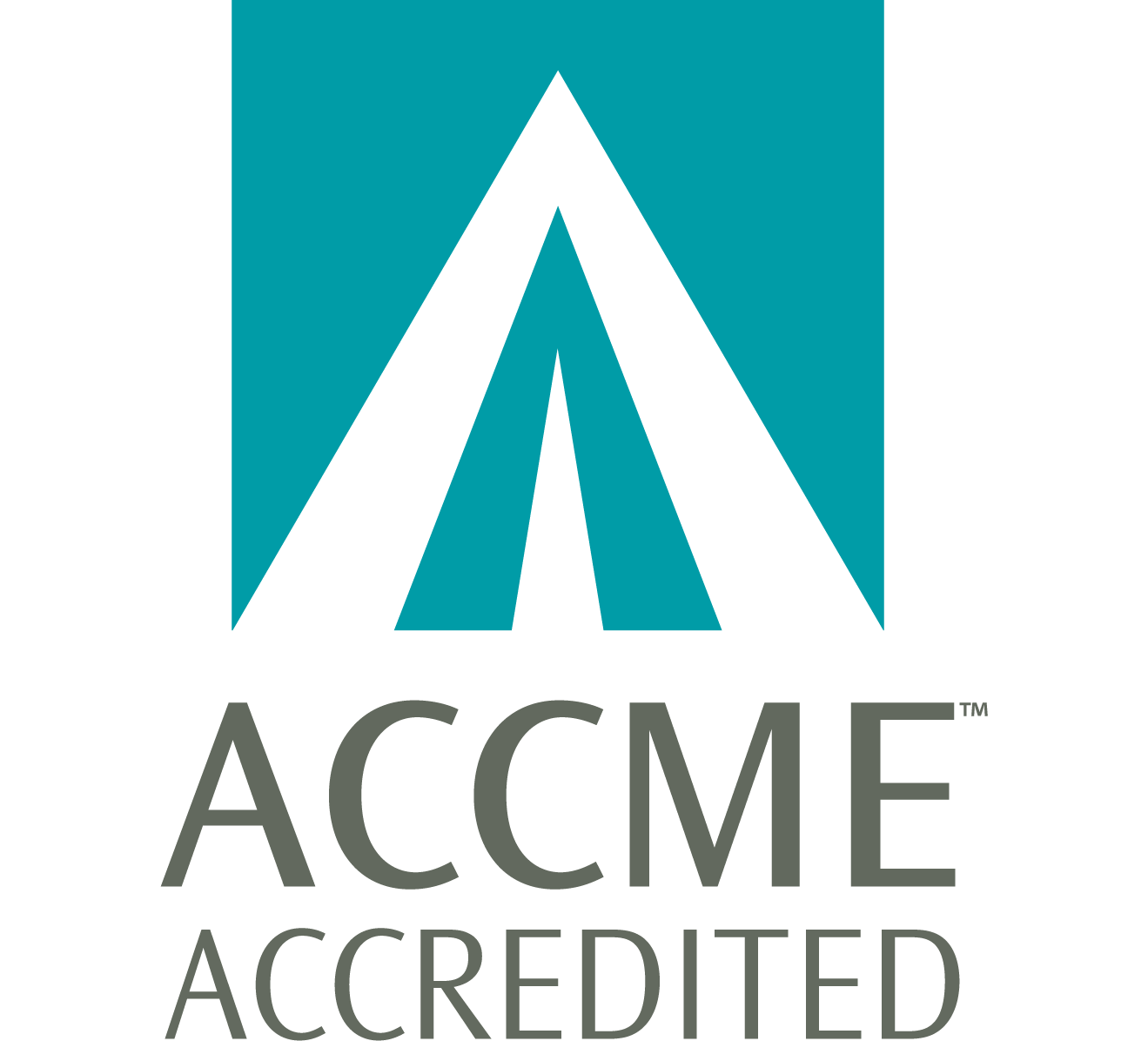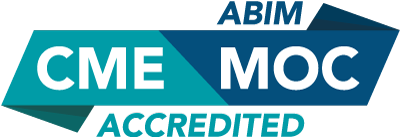

Featuring perspectives from Dr Arjun Balar, Prof Thomas Powles and Dr Arlene Siefker-Radtke. (Video Program)
CE Information and Faculty Disclosures
TARGET AUDIENCE
This program is intended for medical oncologists, hematology-oncology fellows and other allied healthcare professionals involved in the treatment of bladder cancer.
OVERVIEW OF ACTIVITY
An estimated 81,400 new cases of bladder cancer will be diagnosed in 2020, and 17,980 deaths will be attributable to this disease. Optimal treatment of the most common form, urothelial bladder carcinoma (UBC), depends on the stage and grade of the tumor and patient comorbidities. For those patients who present with or develop metastatic lesions beyond the bladder, cure is not attainable and the goal of therapy is to prolong quantity and quality of life. Historically, therapeutic options for metastatic UBC were largely limited to chemotherapy, but more recently a number of novel agents and strategies have yielded favorable outcomes, leading to a spate of FDA approvals and the promise of more. In addition, significant enthusiasm exists for the further investigation of these approaches in earlier, nonmetastatic settings. These developments, coupled with the plethora of controversies and uncertainties plaguing the current management of UBC, provide the impetus for continuing education for practicing clinicians.
This recording of a live CME webinar, originally planned as an in-person symposium for the 2020 ASCO Annual Meeting in partnership with the University of South Florida (USF Health) Office of Continuing Professional Development, uses the perspectives of leading clinical investigators to address some of the most frequently encountered questions and controversies in the management of UBC. By providing information on the latest research developments and their potential application in practice, this activity is designed to assist medical oncologists, hematology-oncology fellows and other allied healthcare providers with the formulation of up-to-date clinical management strategies.
LEARNING OBJECTIVES- Compare and contrast the available clinical trial evidence with the use of immune checkpoint inhibitors for the treatment of urothelial bladder carcinoma (UBC) to determine the current utility of these agents in clinical practice.
- Consider the recent FDA approval of pembrolizumab for high-risk, non-muscle-invasive UBC that is unresponsive to bacillus Calmette-Guérin, and determine how this agent can be appropriately integrated into current care.
- Evaluate available data and ongoing trials investigating the use of anti-PD-1/PD-L1 antibodies as neoadjuvant or adjuvant therapy for muscle-invasive bladder cancer, and refer eligible patients for appropriate study participation.
- Review available clinical trial data leading to the recent FDA approval of the anti-PD-L1 antibody avelumab as maintenance therapy following response to first-line platinum-based chemotherapy for patients with metastatic UBC, and incorporate this novel treatment strategy into current management algorithms.
- Assess available and emerging clinical trial data evaluating the use of anti-PD-1/PD-L1 antibodies in combination with chemotherapy for patients with previously untreated metastatic UBC, and consider the potential role of this approach in routine practice.
- Recognize the FDA approval of erdafitinib for patients with advanced UBC and susceptible FGFR3 or FGFR2 genetic alterations whose disease has progressed during or after at least 1 line of platinum-containing chemotherapy, and determine how this agent may be appropriately integrated into clinical practice.
- Recall the mechanism of action and pivotal clinical trial findings with enfortumab vedotin for previously treated locally advanced or metastatic UBC, and identify patients for whom treatment with this novel compound would be appropriate.
- Appraise available research data and ongoing clinical trials evaluating anti-PD-1/PD-L1 antibodies in combination with targeted agents or other immunotherapeutic strategies for metastatic UBC, and counsel appropriately selected patients about participation in active research protocols.
COMPETENCIES TO BE ADDRESSED
Patient Care and Procedural Skills and Medical Knowledge
CONTACT INFORMATION
If you have questions regarding credit, please contact cpdsupport@usf.edu.

ACCREDITATION STATEMENT
USF Health is accredited by the Accreditation Council for Continuing Medical Education (ACCME) to provide continuing medical education for physicians.
CME credit is no longer available for this issue
 AMERICAN BOARD OF INTERNAL MEDICINE (ABIM) — MAINTENANCE OF CERTIFICATION (MOC)
AMERICAN BOARD OF INTERNAL MEDICINE (ABIM) — MAINTENANCE OF CERTIFICATION (MOC)
CME credit is no longer available for this issue
HOW TO USE THIS CME ACTIVITY
Audio Program: This CME activity consists of an audio component.
CME credit is no longer available for this issue
Video Program: This CME activity consists of a video component.
CME credit is no longer available for this issue
CONTENT VALIDATION AND DISCLOSURES
USF Health adheres to ACCME Standards regarding commercial support of continuing medical education. It is the policy of USF Health and Research To Practice that the faculty and planning committee disclose real or apparent conflicts of interest relating to the topics of this educational activity, that relevant conflict(s) of interest are resolved and also that speakers will disclose any unlabeled/unapproved use of drug(s) or device(s) during their presentation.
FACULTY — The following faculty (and their spouses/partners) reported relevant conflicts of interest, which have been resolved through a conflict of interest resolution process:
Arjun Balar, MD
Associate Professor, Department of Medicine
Director, Genitourinary Medical Oncology Program
NYU Perlmutter Cancer Center
New York, New York
Consulting Agreements: AstraZeneca Pharmaceuticals LP, Genentech, a member of the Roche Group, Janssen Biotech Inc, Merck, Nektar, Pfizer Inc, Seattle Genetics; Contracted Research: AstraZeneca Pharmaceuticals LP, Genentech, a member of the Roche Group, Immunomedics Inc, Janssen Biotech Inc, Merck, Nektar, Pfizer Inc, Seattle Genetics.
Thomas Powles, MBBS, MRCP, MD
Professor of Genitourinary Oncology
Barts Cancer Institute
Director of Barts Cancer Centre
Queen Mary University of London
London, United Kingdom
Consulting Agreements: Astellas, AstraZeneca Pharmaceuticals LP, Bristol-Myers Squibb Company, Eisai Inc, Exelixis Inc, Incyte Corporation, Ipsen Biopharmaceuticals Inc, Johnson & Johnson Pharmaceuticals, Merck Serono, Merck Sharp & Dohme Corp, Novartis, Pfizer Inc, Roche Laboratories Inc, Seattle Genetics; Contracted Research: Astellas, AstraZeneca Pharmaceuticals LP, Bristol-Myers Squibb Company, Eisai Inc, Exelixis Inc, Ipsen Biopharmaceuticals Inc, Johnson & Johnson Pharmaceuticals, Merck Serono, Merck Sharp & Dohme Corp, Novartis, Pfizer Inc, Roche Laboratories Inc, Seattle Genetics.
Arlene Siefker-Radtke, MD
Professor
Department of Genitourinary Medical Oncology
Division of Cancer Medicine
The University of Texas MD Anderson Cancer Center
Houston, Texas
Advisory Committee: AstraZeneca Pharmaceuticals LP, Bavarian Nordic, Genentech, a member of the Roche Group, Janssen Biotech Inc, Merck, Mirati Therapeutics, Nektar, Pfizer Inc, Seattle Genetics; Contracted Research: Janssen Biotech Inc; Speakers Bureau: Janssen Biotech Inc.
COURSE DIRECTOR/PANEL MODERATOR — Dr Love is president and CEO of Research To Practice. Research To Practice receives funds in the form of educational grants to develop CME activities from the following commercial interests: AbbVie Inc, Acerta Pharma — A member of the AstraZeneca Group, Adaptive Biotechnologies Corporation, Agendia Inc, Agios Pharmaceuticals Inc, Amgen Inc, Array BioPharma Inc, a subsidiary of Pfizer Inc, Astellas, AstraZeneca Pharmaceuticals LP, Bayer HealthCare Pharmaceuticals, Biodesix Inc, bioTheranostics Inc, Blueprint Medicines, Boehringer Ingelheim Pharmaceuticals Inc, Bristol-Myers Squibb Company, Celgene Corporation, Clovis Oncology, Daiichi Sankyo Inc, Dendreon Pharmaceuticals Inc, Eisai Inc, EMD Serono Inc, Exelixis Inc, Foundation Medicine, Genentech, a member of the Roche Group, Genmab, Genomic Health Inc, Gilead Sciences Inc, GlaxoSmithKline, Grail Inc, Guardant Health, Halozyme Inc, Helsinn Healthcare SA, ImmunoGen Inc, Incyte Corporation, Infinity Pharmaceuticals Inc, Ipsen Biopharmaceuticals Inc, Janssen Biotech Inc, administered by Janssen Scientific Affairs LLC, Jazz Pharmaceuticals Inc, Kite, A Gilead Company, Lexicon Pharmaceuticals Inc, Lilly, Loxo Oncology Inc, a wholly owned subsidiary of Eli Lilly & Company, Merck, Merrimack Pharmaceuticals Inc, Myriad Genetic Laboratories Inc, Natera Inc, Novartis, Oncopeptides, Pfizer Inc, Pharmacyclics LLC, an AbbVie Company, Prometheus Laboratories Inc, Puma Biotechnology Inc, Regeneron Pharmaceuticals Inc, Sandoz Inc, a Novartis Division, Sanofi Genzyme, Seattle Genetics, Sirtex Medical Ltd, Spectrum Pharmaceuticals Inc, Sumitomo Dainippon Pharma Oncology Inc, Taiho Oncology Inc, Takeda Oncology, Tesaro, A GSK Company, Teva Oncology, Tokai Pharmaceuticals Inc and Verastem Inc.
USF HEALTH CPD STAFF AND RESEARCH TO PRACTICE CME PLANNING COMMITTEE — Members, Staff, and Reviewers have no relevant conflicts to disclose.
This educational activity contains discussion of published and/or investigational uses of agents that are not indicated by the Food and Drug Administration. Research To Practice does not recommend the use of any agent outside of the labeled indications. Please refer to the official prescribing information for each product for discussion of approved indications, contraindications and warnings. The opinions expressed are those of the presenters and are not to be construed as those of the publisher or grantors.
This activity is supported by educational grants from Astellas and Seattle Genetics, AstraZeneca Pharmaceuticals LP, and Janssen Biotech Inc, administered by Janssen Scientific Affairs LLC.
Release date: October 2020
Expiration date: October 2021
(WIFI is recommended for best performance):